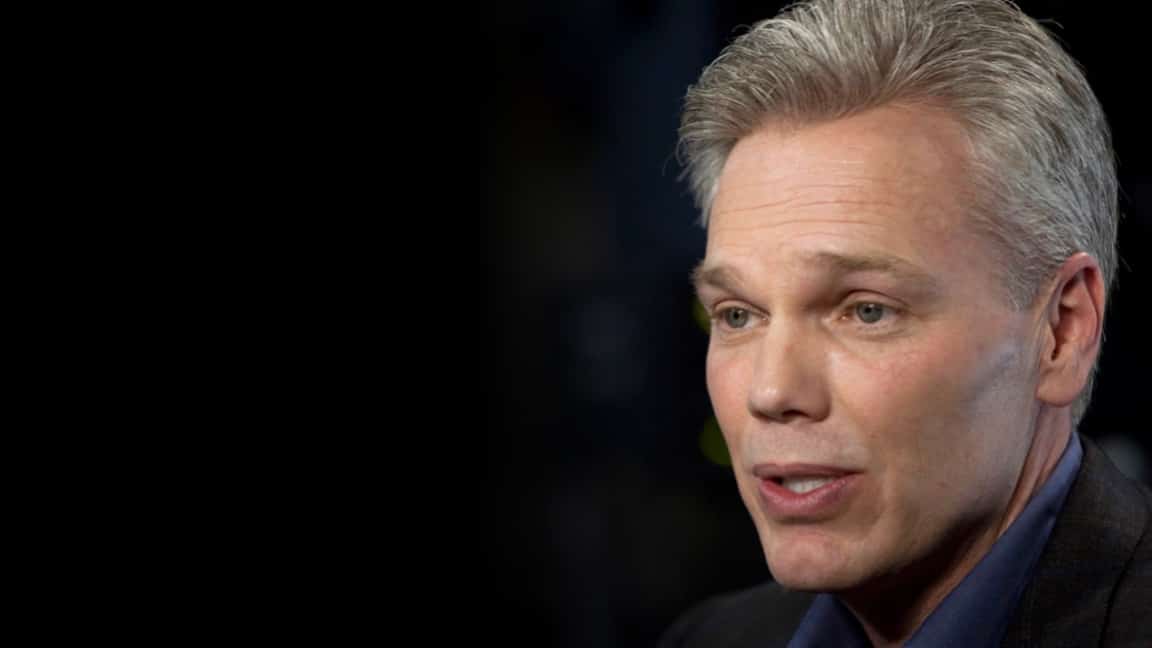This edition of the CEO interview features Sam Walsh, the recently retired CEO, of Rio Tinto. Rio Tinto, founded in 1873, is a British-Australian multinational and one of the world’s largest metals and mining corporations.
The company has grown through a long series of mergers and acquisitions to place itself among the world leaders in the production of many commodities, including aluminum, iron ore, copper, uranium, coal, and diamonds.
The company global headquarters are in London, United Kingdom (Rio Tinto Plc) with the Australian Headquarters in Melbourne, Australia (Rio Tinto Ltd). Rio Tinto Group is structured as a dual-listed company, with listings on both the London Stock Exchange in London under the name Rio Tinto Plc and the Australian Securities Exchange in Sydney under the name Rio Tinto Limited (and also has ADRs listed in The New York Stock Exchange).
As you might suspect, Sam Walsh is a widely recognized name within the mining industry. What few may appreciate is Sam’s love for classical music, ballet, and opera, art, antiques.
Since taking up the CEO seat at Rio Tinto Sam has steered the business through a torrid industry downturn and firmly positioned them for new growth. His successor, Mr. Jean-Sebastien Jacques, will undoubtedly be grateful for the current state the business has been left in as he looks to make his mark in the firm.
In the text that follows you’ll hear Sam’s views on leadership, the state of the market, and you’ll be introduced to his retirement ambitions and the future challenges for the boardroom, following his return to Perth, Australia. On with the interview.
Gordon Berridge:
Our readers, with mining knowledge, will be familiar with the name Sam Walsh and Rio Tinto, but to provide a complete sketch of your background, would you please share a brief summary of your career history?
Sam Walsh:
I graduated with a Bachelor of Commerce from Melbourne University and started my career in the Automotive Industry at General Motors in Australia in 1972.
In 1973/4 I participated in an Overseas Fellowship at General Motors Institute (now Kettering University) in a work/study cooperative program in Flint, Michigan, which was the birthplace of GM. This program which moved me through all major departments (Engineering, Finance, Supply, Vehicle Assembly, IS&T, etc.) with the equal rotation of study in the final year of GMI’s Business Administration School, really launched my career at GM and led to my quick progression through the organization culminating in my leading the team that restructured General Motors in Australia in 1986.
In late 1986 I was headhunted to join Nissan Australia where I ultimately had responsibility for all of Nissan’s Manufacturing in Australia. During this time, we raised the quality systems and actual performance to allow exports of Australian-made Nissans to Japan.
In 1991 I was again headhunted, this time by CRA (now Rio Tinto) to turn around and sell their Iron, Steel, and Aluminium Foundry businesses in Australia, USA, and Chile. In 1994 having ostensibly completed this successfully I was transferred to the mining side of the business, in iron ore, then aluminum – running the Aluminium Product Group, back to Iron Ore to run this Product Group and then in early 2013 I was promoted to Global CEO.
I have been extremely fortunate to have had a very varied career.
I started my career in purchasing; migrated to sales and marketing; moved to manufacturing, mining, and then general management in a business operating in 40 countries.
I have experienced executive and non-executive directorship roles in:
- Manufacturing (GM and Nissan),
- Mining (RIO),
- Media (Australia’s largest media company Seven West Media)
- Not for Profit and Arts, (Royal Opera House and Ballet, Black Swan State Theatre in WA, etc.).
Gordon Berridge:
Would you please share what first attracted you to join Rio Tinto back in 1991?
Sam Walsh:
I was looking for a fresh challenge in a global company run from Australia. Rio Tinto provided that opportunity.
Gordon Berridge:
What are your immediate plans now you have retired from Rio Tinto?
Sam Walsh:
Upon retiring, I took the advice from a former CEO of Rio, Leigh Clifford, and indicated to all and sundry that I was “holding my dance card empty for a while”. I am basing myself in Perth, Western Australia, but seeking Non-Executive Directorship roles either with a National or International focus. I have an open mind as to the field of endeavor of the organizations.
I will, of course, continue with my Charity and Arts connections.
Gordon Berridge:
Throughout your career with Rio Tinto what would you say have been the milestone/defining moments, and how did they shape you to take overall responsibilities eventually as CEO?
Sam Walsh:
Clearly restructuring Rio’s Iron Ore business (following the restructure of GM in Australia and Nissan Australia), which is the largest cash contributor to the company and very large business in its own right, provided me, with experience and capability to manage the complexity of the total Rio Tinto organization, and the restructuring and repositioning that was required on a Global basis.
I had joined the Rio Board in 2009, so I already had broad oversight of the company’s diverse operations.
Strangely, it was my numerous community engagements in a wide range of organizations – the Arts, Church, Scouting, Government, that prepared me for the CEO role, learning how to manage many diverse issues of different scale, importance, and urgency, all at the one time.
Gordon Berridge:
Did you have a mentor at Rio Tinto, if so, how important was that person to you and your development?
Sam Walsh:
I believe that mentors and coaches are vital, to provide independent feedback, wise counsel, and assist in holding one’s feet to the fire. In my case, I was extremely fortunate to have Paul Victor of Vmax, a Doctor of Psychology with a manufacturing background, so we understood each other well. Paul assisted me particularly as I entered new territory in restructuring, and maintaining the focus on getting the balance right between the present and future business.
Gordon Berridge:
Following the new Rio Tinto group restructure, how do you expect the company to perform, taking into consideration the industry outlook, your prior involvement, and the new CEO’s leadership vision?
Sam Walsh:
The Rio Tinto business, in relative terms, is the strongest of the Mining Houses. It has the strongest balance sheet, is the most profitable mining business in the world (measured by underlying earnings and cash generation), has substantially reduced costs (by some $6 billion), working capital ($3.5 billion), development and sustaining capital expenditure (reduced by a two-thirds), and divested a significant number of non-core businesses (4.7 billion in the last 5 years).
The company is continuing to invest in further Tier One assets in key growth areas of bauxite, copper, and iron ore.
Rio Tinto is very well placed going forward to generate significant cash, make meaningful shareholder returns, and continue to grow the business. This provides a very stable platform for Jean-Sebastien Jacques the new CEO, to take the business forward.
Gordon Berridge:
What do you see as the greatest leadership strength?
Sam Walsh:
I have jokingly said that the CEO doesn’t do any work – she or he does not drive Haul Trucks or operate Excavators which creates the pathway for generating cash in a mining company.
A CEO, however, works through her or his team, in my case, it was 55,000 employees. Having the Leadership qualities that enable you to elucidate the strategy and plan precisely, then communicate, engage, and involve the entire organization in implementing this is essential. Many teams fail in not continuing the process by providing feedback on achievement and celebrating success.
Gordon Berridge:
If you had the ability to see 20 years into the future, what do you believe the mining industry will look like, do you see anyone breaking the dominance of a Rio Tinto, Vale, or BHP Billiton?
Sam Walsh:
At Rio Tinto, we had an innovation program called “Mine of the Future”. However, I said time and time again that I was the only person in the company that did not know what the expression meant.
Someone would always try to describe it for me regarding remote operations centers or automated equipment. Yes, I indeed introduced these innovations to Rio, however, I did not want to limit people’s view of the “Mine of the Future” by defining it in today’s terms. Who would have imagined ten years ago that we would be using Big Data to mine the host of data generated by sensors and transducers in our operations to optimize performance across sites and continents?
I expect that the Mining Industry will look very different in 20 years. After all, mining is enormous logistics operations transporting ore from one side of the planet to another, with a bit of mining and processing attached. Who would have thought that Rio Tinto would become the largest shipping company in the world (by tonnes)?
The successful mining companies of the future will seek to be in the most attractive segments, and with high-quality deposits, tier-one low cost, and expandable operations
Gordon Berridge:
When will you be planning to take on assignments in the boardroom?
Sam Walsh:
My interest is in creating value for shareholders, I was very outspoken about this as a CEO, and it’s something that I will continue to focus on moving from an Executive Director role to Non-Executive Director roles. I will know (and hopefully the prospective company will know) when the right opportunity appears.
Gordon Berridge:
Generally speaking, what role do you feel the board of directors should play in an organization and what challenges do you expect boards will face in the coming years?
Sam Walsh:
The board’s key role is to represent shareholders, who are the owners of an entity, and to set the overarching strategy while reviewing and approving the short-term planning, and monitoring performance by management against the strategy and plans.
These days there is a growing emphasis on Governance and Compliance with Legislation and Regulations.
Key operating tasks for a Board are to propose for shareholder approval, the selection and remuneration of the Board members themselves, and the senior management team.
In the future, I expect that the accountability of Directors will increase exponentially as Governments attempt to eliminate the poor practice by the worst operating companies, and if this continues and Boards are not careful, will fuzzy the line of accountabilities between Non-Executive and Executive Director roles.
Gordon Berridge:
If you could give aspiring business leaders and our readers any advice what would that be?
Sam Walsh:
Continue to reinvent yourselves. Some people think that they learned all that they needed to learn at school, at university, or in their early careers. However, the world is a very volatile fast-moving environment, and what worked in the past is not necessarily going to work as effectively in the future.







